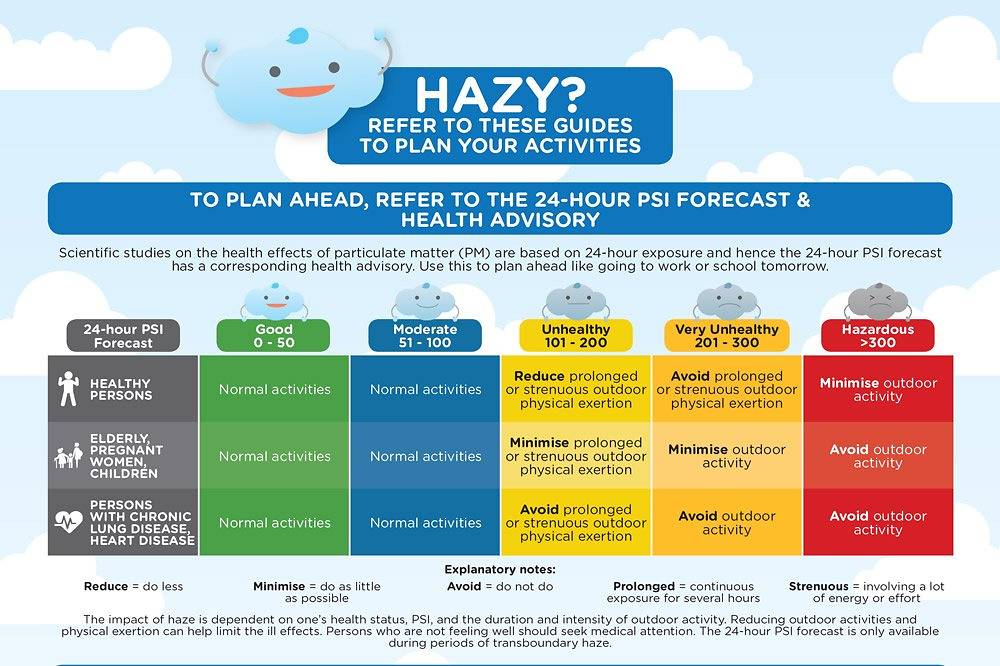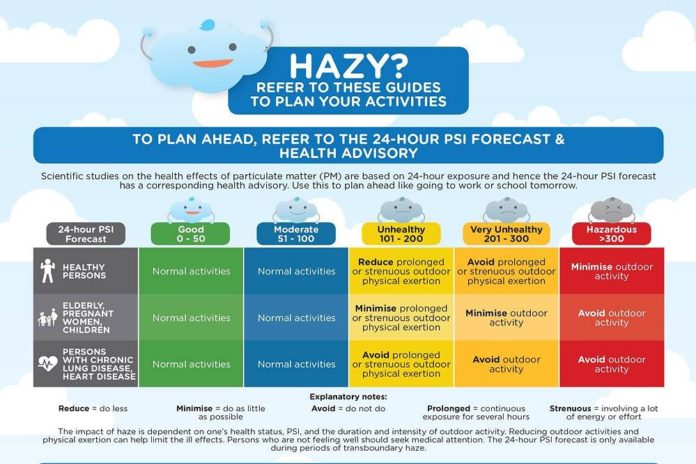SINGAPORE: As the haze continues to persist, healthcare institutions and nursing homes across Singapore say they are taking steps to protect those under their care, especially those in wards and rooms without air-conditioning.
At Changi General Hospital (CGH) for instance, a “multi-pronged” approach has been put into place to ensure the safety of patients and staff, CGH’s service operations director Dr Goh Min Liong told CNA.
Said Dr Goh: “In wards without air conditioning, portable air cooling units and air purifiers are deployed, and screens to prevent the inflow of haze are fitted where necessary.”
CGH’s ventilation systems are also fitted with HEPA (high-efficiency particulate air) filters, added Dr Goh. These are filters that trap harmful particles in the air.
In addition, CGH is monitoring the number of patients with respiratory-related conditions, explained Dr Goh, and patients who have medical conditions that make them susceptible to the haze have been given suitable respirators for support where advised by doctors.
READ: Understand the haze: What do Singapore’s air quality readings mean and how do they differ from others?
The National University Health System (NUHS) – which manages several hospitals, including National University Hospital, Ng Teng Fong General Hospital, Alexandra Hospital and Jurong Community Hospital – has also implemented measures to maintain indoor air quality, an NUHS spokesperson told CNA.
This includes shutting windows in the naturally-ventilated patient areas and deploying portable air cooling and purifying units.
“Filters are installed to the air-conditioning systems in the buildings to minimise pollutants and smell in the air. We have a good supply of essential supplies … medicine, eye drops, inhalers, surgical masks and N95 masks,” said the spokesperson. “Staff who are susceptible to the haze condition will be redeployed to work indoors.”
For instance at Alexandra Hospital, security personnel wear masks when deployed outdoors for patrolling, while the daily frequency for groundskeeping such portering and landscaping has been reduced.
At NUHS polyclinics, the elderly, pregnant women, children and those with existing chronic respiratory and heart diseases will be given priority for consultations and treatment, its spokesperson added.
While Tan Tock Seng Hospital (TTSH) did not respond to CNA’s queries, a visit to one of its wards last Wednesday also found that windows were shut, with all fans switched on for ventilation.
“The healthcare institutions take reference from the National Environment Agency’s guidelines on indoor air quality, in managing the particulate matter (PM) levels in indoor spaces,” said the Ministry of Health in response from CNA’s queries.
AN EYE ON THE SITUATION
Nursing homes have also been proactive in battling the haze.
At Thong Teck Home for Senior Citizens, steps are taken to ensure that residents in the non air-conditioned nursing home are protected when the Pollutant Standards Index (PSI) exceeds 100.
According to the National Environment Agency (NEA), PSI readings of 50 and below denote “good” air quality, “moderate” for 51-100 and “unhealthy” for 101-200.

National Environment Agency’s health advisory. (Image: National Environment Agency)
Haze updates are disseminated to all key personnel every two hours through a central information kiosk, said the home’s deputy nursing officer, SN Santie Antonio Soria, with fans being turned on at all times, and face masks being made available to residents, staff and visitors.
When the 24-hr PSI reading crosses into the unhealthy range, Ren Ci Hospital’s haze management plan also kicks in at its nursing homes, it told CNA.
In addition to making use of air purifiers and monitoring residents for adverse reactions to the haze, it also conducts less intensive rehabilitation activities in air-conditioned areas.
READ: 16 million N95 masks available in national stockpile as haze covers Singapore
“We placed emphasis on hydration for patients/ residents and have been brewing drinks like barley water for them and staff as well,” added Ren Ci.
At Thye Hwa Kwan’s nursing home, two-hourly rounds in “designated areas” are also conducted to check on residents’ well- being, it told CNA.
All outdoor activities in the nursing home have also been cancelled till further notice.
Standby inhalers, eye drops and heart-related medications for emergency use are also readily available, it added.





